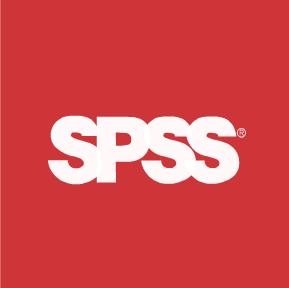Sharing Research Data: Perspectives from the Campus Community
A panel and discussion on sharing research data will be held next Tuesday from 2:30-4pm in the Library Gallery (100 Hatcher Graduate Library).
Data have been in the spotlight recently, with government open data initiatives spurring interest in data sharing and interoperability. Funding programs such as DataNet aim to build the necessary infrastructure to allow research data to be shared seamlessly and preserved for the long term. At the May 5th meeting of the National Science Board, NSF officials announced that starting in October 2010 all proposals submitted to the NSF must include a data management plan, including provisions for the sharing of research data. In FY 2008-09 University of Michigan researchers received $64.8 million in NSF grants. How will these researchers deal with the new requirements, and how can the campus community best support them in sharing their data?
Please join the University of Michigan’s Art, Architecture, Science and Engineering Libraries and the Librarians’ Forum for an interdisciplinary discussion of data sharing and licensing options available to University of Michigan researchers. Representatives from a number of campus research communities will report on the current state of data sharing in their field. Presentations will be followed by discussion and Q&A.
This event is free and open to the public; no registration is required. Light refreshments will be served.
Speakers:
Dr. Philip Andrews is Professor in the departments of Biological Chemistry, Chemistry, and Bioinformatics at the University of Michigan Medical School. He received his B.S. degree in Chemistry at the Georgia Institute of Technology and his Ph.D. in Biochemistry at Purdue University with Dr. Larry Butler. Recent work in Dr. Andrews’ laboratory has included the molecular architecture of organelles, analysis of phosphoproteins, methods for quantitative proteomics, approaches to improving interaction maps, and computational methods for analysis of proteomics data. Proteome informatics projects include development of new tools for de novo sequence analysis, spectral clustering (Bonanza), the Tranche data dissemination system, the proteomecomons.org data resource, an information management system for proteomics (PRIME), assessment of search results, and specialized tools for viewing and processing proteomics data (MSExpedite, Babel Fish).
Greg Grossmeier is Copyright Specialist at the University of Michigan Library, where his time revolves around giving presentations and answering copyright and publishing questions for faculty, staff, and students. He is also tasked with maintenance of the copyright website and with promoting Open Access publishing at the University. He consults with the Open.Michigan initiative on legal and policy matters around Open Educational Resources and is a Creative Commons Fellow, providing expertise on topics such as Open Educational Resources and the Free/Libre Open Source Software community. Greg holds an MSI in Information Policy from the University of Michigan School of Information and a BA in Anthropology from the University of Minnesota.
Alex Kanous is Operations Manager of the Data Sharing & Intellectual Capital (DSIC) Knowledge Center, part of the National Cancer Institute’s caBIG initiative located at the University of Michigan. There he participates in a collaborative effort to encourage and facilitate data sharing to advance scientific discovery, consistent with applicable legal, regulatory, ethical and contractual requirements. Mr. Kanous has an MSI with a concentration in Information Policy from the University of Michigan School of Information and a JD with a focus on Intellectual Property from the Michigan State University College of Law.
Event Contact: Jacob Glenn [email protected]
Date: Jul 27th, 2010
Time: 2:30pm – 4:00pm
Location: Hatcher Graduate Library, Gallery in Room 100
http://www.lib.umich.edu/gallery/events/sharing-research-data

 The Office of Research is hosting a multi-session workshop designed to introduce users to SPSS, a powerful software tool used for statistical analysis. The session will be facilitated by Joe Kazemi from the
The Office of Research is hosting a multi-session workshop designed to introduce users to SPSS, a powerful software tool used for statistical analysis. The session will be facilitated by Joe Kazemi from the